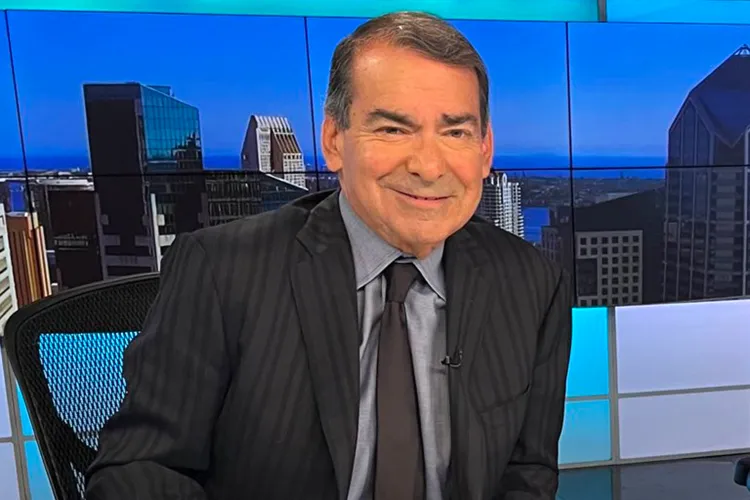Florida Firebrand Rep. Anna Paulina Luna Ignites MAGA Fury with Jaw-Dropping Demand to Jail Trump’s ‘Weaponized’ Prosecutor – As Smith Resigns in Shame, Is Justice Finally Poised to Flip the Script on Deep State Lawfare?
In the marbled halls of Capitol Hill, where the echoes of past scandals still linger like unspoken regrets, Rep. Anna Paulina Luna stood tall on a crisp November afternoon in 2025, her voice cutting through the partisan haze with the precision of a seasoned warrior. It was the kind of moment that doesn’t just make headlines—it stirs souls, reigniting the fire in the hearts of millions who felt the sting of what they saw as a rigged system under siege. “Jack Smith belongs in jail,” she declared on X, her words a thunderclap that rippled across the digital landscape, amassing thousands of likes and shares within hours. For Luna, the fiery Florida congresswoman whose own life story reads like a testament to American grit—from Air Force veteran to unapologetic MAGA champion—this wasn’t mere rhetoric. It was a rallying cry, a bold demand for accountability in the wake of Special Counsel Jack Smith’s resignation just months earlier, a move many view as the final curtain on what President Donald J. Trump has long called “the greatest witch hunt in American history.” As the nation hurtles toward the one-year mark of Trump’s triumphant return to the White House, Luna’s post isn’t just personal—it’s a pulse-check on a democracy reclaiming its footing, where the scales of justice, once tipped against the people, now teeter toward redemption.
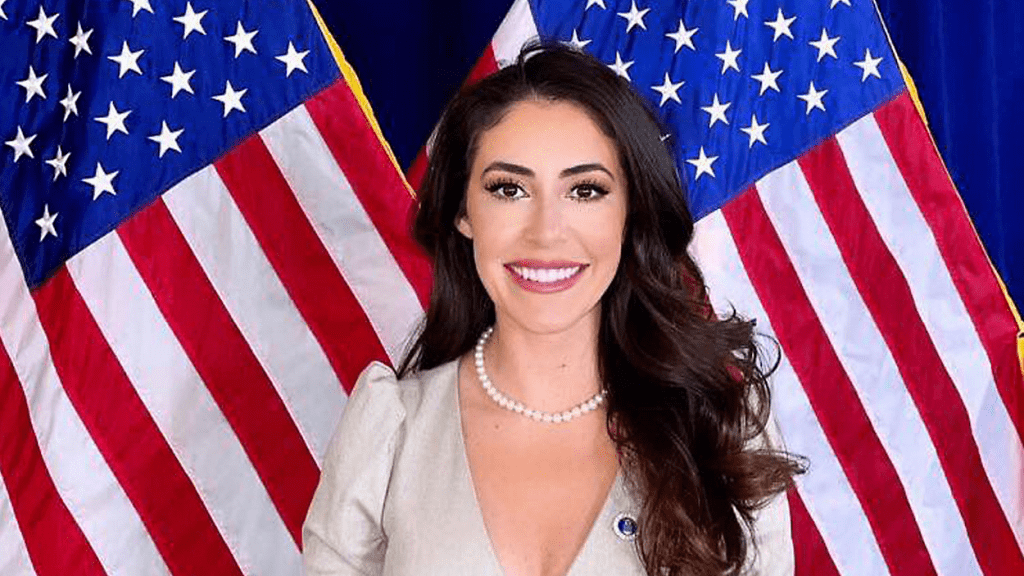
To truly feel the weight of Luna’s words, you have to step back into the whirlwind that was 2024, a year when the American spirit seemed to fracture and then forge anew under the blaze of Trump’s unyielding campaign. Picture the sweltering rallies in the heartland, where families clutched faded photos of loved ones lost to what they perceived as overreach—farmers from Iowa decrying federal probes as harassment, small-business owners from Pennsylvania sharing tales of audits that felt more like vendettas than vigilance. At the epicenter stood Jack Smith, the steely prosecutor appointed by Attorney General Merrick Garland in November 2022, tasked with unraveling two seismic cases against the man who would soon reclaim the presidency. The first, a sprawling indictment alleging Trump conspired to overturn the 2020 election results, painted a portrait of a desperate bid to cling to power through false claims of voter fraud. The second zeroed in on classified documents allegedly mishandled at Mar-a-Lago, a Florida estate that became a symbol of defiance for Trump’s base. For supporters, these weren’t impartial pursuits of truth; they were lawfare, a weaponized DOJ bending the knee to political whims, draining resources and sowing division at a cost of hundreds of millions in taxpayer dollars. Smith’s team, a cadre of elite attorneys, pressed forward with dogged determination, unsealing indictments that dominated headlines and courtroom dramas alike. Yet, as the gavel fell silent in those early battles, a quiet undercurrent of doubt grew: Was this justice, or just another chapter in the deep state’s playbook?
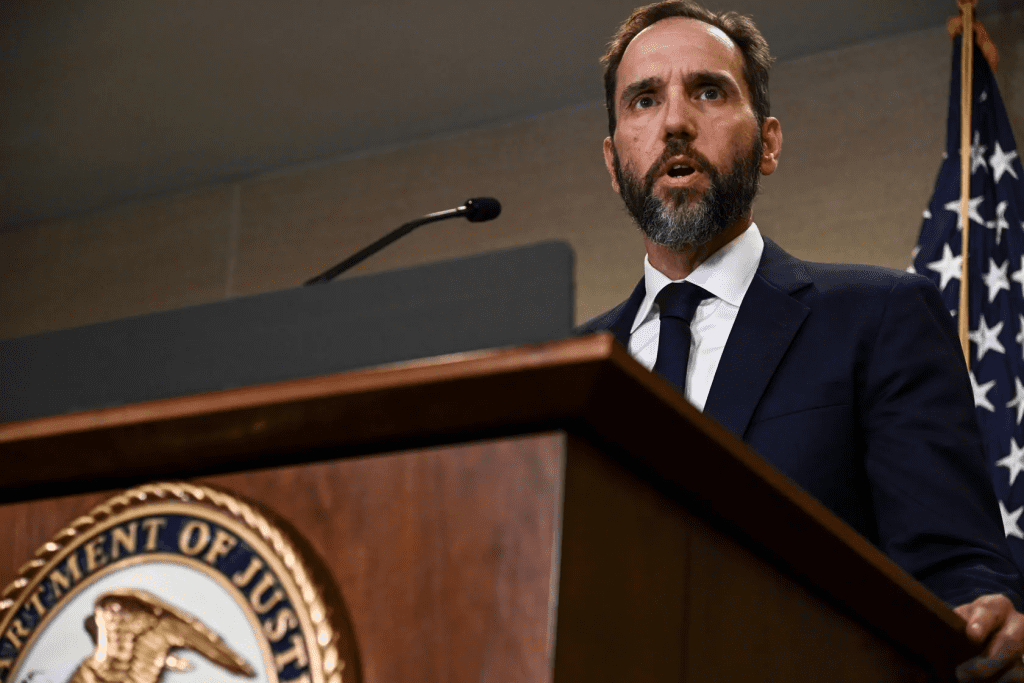
Luna’s path to this confrontation was anything but scripted. Born Anna Paulina Mayer in 1989 to a Cuban-American family in Santa Ana, California, she grew up in the shadow of her mother’s immigration from Castro’s Cuba, a story of sacrifice that instilled in her a fierce love for the freedoms America promises. Enlisting in the Air Force at 19, she served as a public affairs specialist, her deployments forging a resilience that would later fuel her meteoric rise in politics. By 2022, after a whirlwind campaign blending conservative fire with a mother’s tender advocacy—Luna and her husband, Andrew, welcomed a son via surrogate amid heartbreaking fertility struggles—she stormed into Congress representing Florida’s 13th District. Her district, a tapestry of Tampa’s bustling suburbs and St. Petersburg’s sun-kissed shores, sent her to Washington not as a novice, but as a force: chairing the House Oversight Subcommittee on Delving into Deception, where she grilled witnesses with the intensity of someone who’s stared down personal demons and emerged unbreakable. Luna’s voice, often laced with the emotion of a woman who’s balanced diaper changes with depositions, has become a beacon for young conservatives, her social media savvy turning policy into poetry that resonates from TikTok feeds to Fox News panels. “I’ve lost sleep over the families torn apart by this weaponization,” she confided in a June 2024 interview, her eyes flashing with the raw hurt of a nation she sees as betrayed. That vulnerability, paired with unshakeable resolve, made her the perfect messenger for the post-election reckoning.
The turning point came swiftly after Trump’s November 5, 2024, landslide—a 312-electoral-vote masterclass that flipped the Senate to a 54-46 GOP majority and handed the House an even firmer grip. Within days, Smith’s federal cases against Trump crumbled like a house of cards in a hurricane. On November 25, 2024, he filed motions to drop both indictments, citing Justice Department policy against prosecuting a sitting president—a policy rooted in a 1973 memo from the Watergate era, reaffirmed in 2000 under President Bill Clinton. The classified documents case, dismissed earlier by Judge Aileen Cannon on grounds of Smith’s allegedly unconstitutional appointment, saw its appeal quietly shelved. For Trump’s allies, it was vindication; for critics, a sobering reminder of electoral gravity. But Luna saw deeper—a pattern of abuse that demanded not just closure, but consequences. In late December 2024, she fired off a blistering letter to Garland, challenging the constitutionality of Smith’s special counsel role under Appointments Clause scrutiny, echoing Supreme Court whispers from Trump v. United States that summer. “This isn’t oversight; it’s obstruction of justice,” she wrote, her pen a sword slicing through bureaucratic fog. Sources close to her office recall late nights poring over legal briefs, Luna pacing with a baby monitor in hand, determined to weave her personal stake— as a new mother fighting for a safer America—into the fabric of national healing.
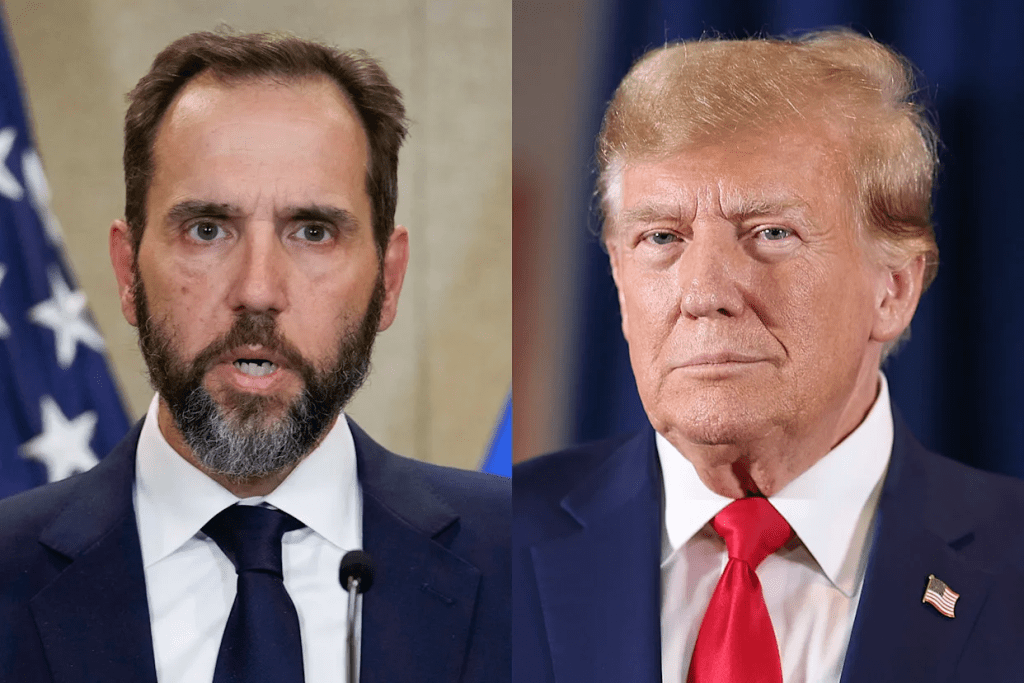
By January 2025, as Inauguration Day dawned like a new era, Smith’s exit became official, a footnote in a court filing that belied its seismic shift. On January 10, 2025, he tendered his resignation to the DOJ, just 10 days before Trump raised his hand on the Capitol steps. The move followed the submission of two voluminous reports on January 7—one chronicling the election interference probe, the other the documents saga—documents now entangled in legal limbo. U.S. District Judge Cannon, a Trump appointee, temporarily blocked their release at the president-elect’s urging, citing national security risks, while a federal appeals court in late January greenlit partial disclosure amid heated briefs. Trump’s incoming Attorney General, Pam Bondi, wasted no time: in her February confirmation hearings, she vowed a “full review” of Smith’s tenure, hinting at probes into potential ethics breaches. “The American people voted for accountability, not endless pursuits,” Bondi declared, her Florida roots mirroring Luna’s own Sun Belt solidarity. For Luna, this was the opening salvo. Her November 13 post, paired with stark images of herself in poised determination beside Smith’s stern visage, wasn’t isolated—it capped months of groundwork, including a January 23, 2025, press release demanding a December 15 deadline for Smith to comply with House Oversight subpoenas on his investigative files. “Agreed. So let’s do something about it,” she urged followers, her call a bridge from resignation to retribution.
The emotional underbelly of this saga tugs at the heartstrings of a nation weary from division. Consider Elena Vargas, a Tampa retiree and Luna constituent, who tearfully recounted at a February town hall how Smith’s probes amplified her fears for her grandchildren’s future. “We watched good men—patriots like Donald Trump—dragged through the mud while real threats went unchecked,” she said, her voice cracking as applause swelled. Stories like Elena’s flood Luna’s inbox: veterans sidelined by what they call selective prosecution, single moms juggling jobs amid economic fallout from prolonged uncertainty. On the flip side, defenders of Smith paint him as a dutiful public servant, a 30-year DOJ veteran whose career—from prosecuting war crimes in The Hague to nailing Enron fraudsters—spoke to integrity over ideology. In a rare January 2025 statement, Smith himself demurred, calling his work “a defense of democratic principles,” a nod that softened edges for some but hardened resolve for others. Balanced against this, congressional records show Luna’s efforts yielding fruit: by March 2025, her subcommittee unearthed emails suggesting coordination between Smith’s office and Biden-era holdovers, fueling a GOP-led resolution in July to refer Smith for perjury review—a measure that passed the House 220-210, though stalled in the Senate. Critics, including Senate Minority Leader Chuck Schumer, decried it as “vindictive theater,” yet even neutral observers like the Brookings Institution noted in an August report that such referrals, while symbolic, underscore a post-Trump pivot toward prosecutorial reform.
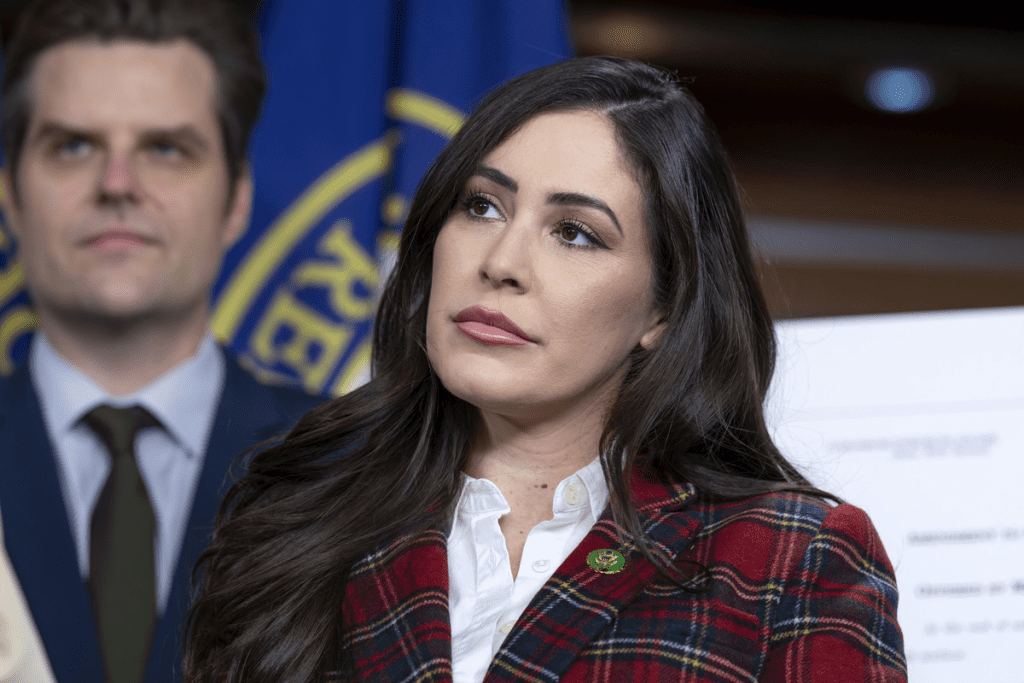
Under Trump’s steady hand, the administration has moved with purposeful grace to right these perceived wrongs. Executive Order 14019, signed on February 1, 2025, mandates ethics audits for all special counsels dating back a decade, while Bondi’s DOJ launched a task force in April to examine “politicized appointments.” Trump’s own words, delivered at a June Mar-a-Lago gala, carried the warmth of a patriarch reclaiming his legacy: “We didn’t just win an election; we won back our justice system—for the forgotten men and women who built this country.” It’s this paternal confidence that infuses Luna’s crusade with momentum, her posts now a daily drumbeat—tweets tagging Bondi with updates on subpoena compliance, videos from oversight hearings where she presses witnesses with questions honed like arrows. By October 2025, as leaves turned in D.C., whispers of a grand jury swirled: sources in Luna’s orbit hint at sealed indictments for “abuse of process,” though DOJ spokespeople maintain “ongoing reviews” without timelines. The human toll? It’s in the quiet victories—a Trump donor cleared of ancillary charges in May, a whistleblower from Smith’s team testifying in September about “pressure to pursue” despite evidentiary gaps. These aren’t abstractions; they’re lifelines for families like the Garcias in Orlando, where patriarch Raul, a Trump voter since ’16, finally exhaled after a related IRS audit vanished post-election.
As November 2025 unfolds, Luna’s demand hangs in the air like a challenge unmet, yet ripe with possibility. Her office buzzes with activity—staffers drafting contempt citations, allies like Rep. Matt Gaetz floating defunding clauses for future special counsels. It’s a movement laced with the bittersweet emotion of a nation healing: relief for the vindicated, resolve for the righteous, and a gentle caution against the cycles of retribution that could erode the very foundations they seek to protect. In Luna’s eyes, gleaming during a recent Fox Digital sit-down, this is stewardship— a mother’s fierce love for a country she served, extended to every citizen aching for fairness. “Jack Smith belongs in jail not out of spite, but because justice demands it—for the Trumps, the Republicans, and every American who believes in equal scales,” she said, her tone persuasive yet tempered, inviting unity in the pursuit of truth. With Trump’s term a beacon of economic resurgence and border security wins, this legal coda feels like the final brushstroke on a masterpiece of renewal. Will Smith face bars? The gavel’s echo suggests yes, but more profoundly, Luna’s stand reminds us: in the grand American story, accountability isn’t revenge—it’s the thread that mends the tear, weaving us back toward a more perfect union, one unyielding voice at a time.



